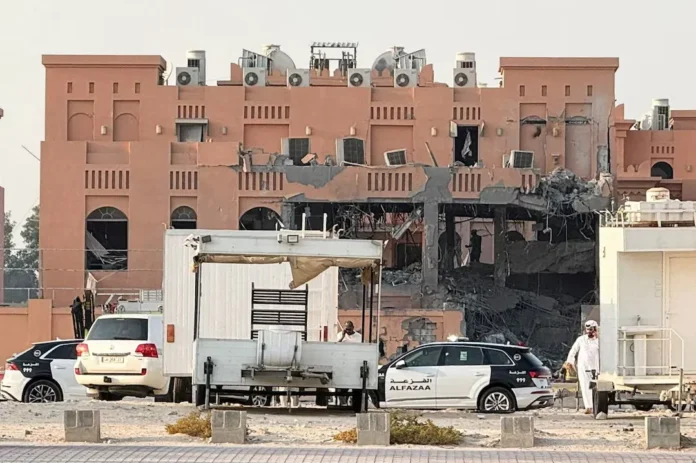Israel’s dramatic airstrike in Doha, Qatar, targeting senior Hamas figures has sent shockwaves across the region. The strike, carried out on September 9, 2025, stunned global observers—not only for its boldness but for the serious diplomatic fallout and limited prior notification to U.S. allies.
The Strike and Its Immediate Impact
In what marked an unprecedented operation on Qatari soil, Israeli forces launched a missile attack in Doha’s diplomatic quarter, where Hamas leaders were convening to consider a U.S. ceasefire proposal. Although Hamas reports that its top political figures survived, five lower-ranking members were killed, alongside a Qatari security officer.ReutersAP NewsThe GuardianWikipedia
Qatar swiftly denounced the strike as “state terrorism” and a flagrant breach of its sovereignty. Global condemnation followed—from the United Nations, the European Union, Gulf allies, and others—who warned that the hit risked derailing fragile ceasefire negotiations centered in Doha.Reuters+1AP NewsCNA
U.S. Involvement: Late Warning, No Endorsement
The United States, taken aback by the operation, stated that Israel did not coordinate with Washington. While officials affirmed that a minimal advance notice was given, it was deemed insufficient to prevent the attack. President Trump described the incident as “unfortunate” and counterproductive to peace efforts, stressing that striking within an allied nation runs counter to shared goals.Reuters+1AP NewsThe Washington Post
The White House confirmed that President Trump instructed an aide to warn Qatari authorities ahead of the strike. However, Qatar dismissed this, claiming the warning came amid the explosions—not early enough to react.ReutersAP NewsThe Guardian
Regional and Diplomatic Ripples
The raid on Qatari territory, long regarded as a regional mediator, raises profound concerns:
- Peace Talks Jeopardized: Discussions on ceasefire and hostage release immediately came under threat as trust between mediators and combatants deteriorated.AP News+1The Guardian
- Sovereignty Violations: Qatar called it a gross violation of international law. Countries such as Saudi Arabia, UAE, Turkey, Iran, Egypt, and several European nations echoed condemnation—warning of broader instability.ReutersThe GuardianCNA
- Shifting Alliances: This could strain the Abraham Accords and other peace mechanisms. Analysts warn of a diplomatic turning point in Middle East relations.Council on Foreign RelationsThe GuardianVG
Why This Strike Matters
- Strategic Boldness: Israel demonstrated its resolve to strike terror targets regardless of location. However, the political cost may outweigh any tactical gains—particularly in worldwide diplomacy.
- Diplomacy Undermined: Qatar’s role as a peace broker is now questioned, and the incident risks alienating the U.S. from its Gulf partners.
- Escalation Risks: With regional outrage mounting, retaliatory actions from neighboring states and non-state actors remain a serious concern.
Summary Table
| Element | Details |
|---|---|
| Date & Location | September 9, 2025 — Diplomatic district, Doha |
| Targets & Casualties | Senior Hamas officials (survived), 5 lower-echelon Hamas members, 1 Qatari security officer |
| U.S. Response | Claimed limited prior awareness; did not authorize the strike; called it counterproductive |
| Qatar’s Position | Denounced the attack as violation of sovereignty; insists warning was ineffective |
| Global Impact | Broad condemnation; ceasefire talks threatened; regional stability at stake |
Israel’s decision to strike Hamas leadership in Qatar—with sparse notification to the U.S.—casts a long shadow over regional diplomacy. As ceasefire hopes hang in balance, the strike serves as a sharp reminder of the fragile nature of peace in the Middle East.




